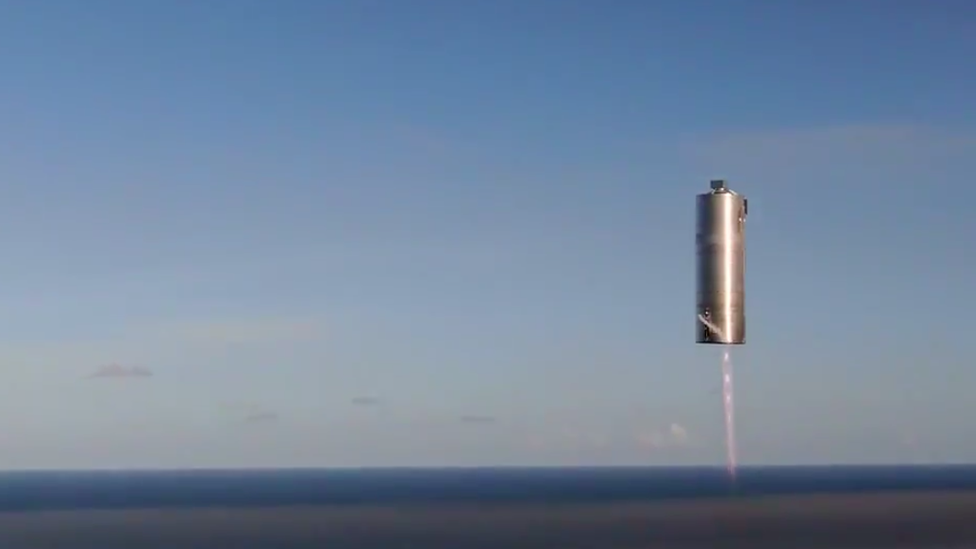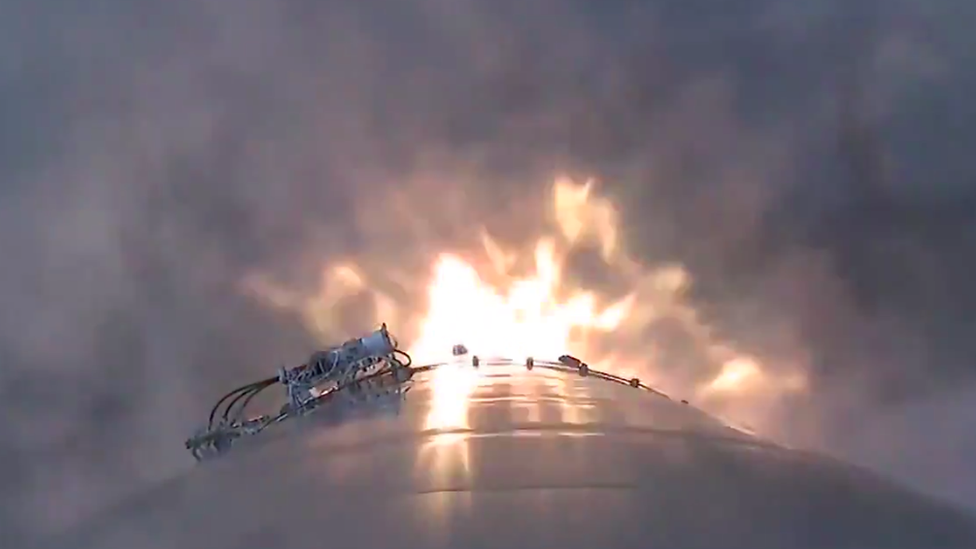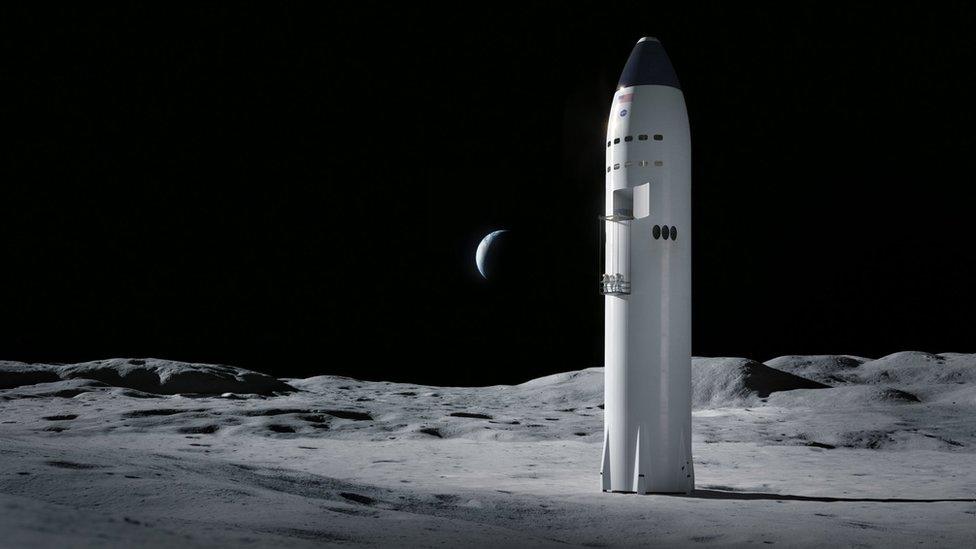SpaceX: Musk's 'Mars ship' prototype aces 150m test flight
- Published

The test flight lasted less than a minute
A prototype of SpaceX's next-generation Starship vehicle has successfully flown to an altitude of 150m (500ft).
The uncrewed test vehicle rose up on a plume of exhaust before deploying its landing legs and touching down softly.
The flight was carried out at SpaceX's test site near the village of Boca Chica in south Texas on Tuesday evening.
It's the first flight test in almost a year for the Raptor engine, which will be used to power Starship.
The stainless steel test vehicle, called SN5, has been compared variously to a grain silo and water tank.
But it could pave the way for a spacecraft capable of carrying humans to the Moon and Mars.
Allow X content?
This article contains content provided by X. We ask for your permission before anything is loaded, as they may be using cookies and other technologies. You may want to read X’s cookie policy, external and privacy policy, external before accepting. To view this content choose ‘accept and continue’.
Shortly after the test flight, which lasted just under a minute, SpaceX founder Elon Musk tweeted: "Mars is looking real."
SN5 took off from Boca Chica at 00:57 BST (18:57 local time) for the brief flight. It uses a single Raptor engine, which is powered by liquid methane and liquid oxygen.
The final Starship vehicle will feature six Raptors, standing 50m (165ft) tall. It could carry 100 people on a single flight.
But in order to overcome Earth's gravity, it will need to be launched by a massive rocket called Super Heavy, which will be equipped with 31 Raptor engines.

The test vehicle deployed landing legs before touching down

SpaceX's Starship could land astronauts on the Moon for Nasa in the 2020s and beyond
Another test vehicle called Starhopper undertook a few brief flights in 2019, also flying to a height of 150m (500ft).
The Starship vehicle is one of three shortlisted candidates to land humans on the Moon in the 2020s for Nasa. A Japanese billionaire, Yusaku Maezawa, who made his fortune in online fashion retail, has booked a trip around the Moon on Starship.
Elon Musk has long harboured plans to settle people on Mars as part of his vision to make humans a "multi-planetary species".
Follow Paul on Twitter., external